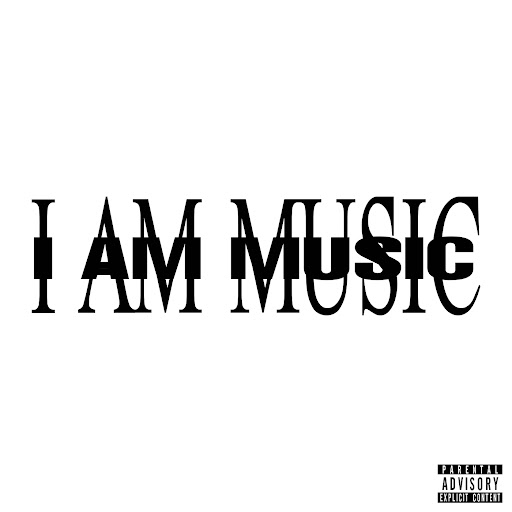
The familiar guitar chords of Mariah Carey’s 1995 smash hit “Fantasy” are instantly recognizable, but after a few moments, it becomes clear that the song playing isn’t the multi-platinum chart-topper. Instead, it’s Latto’s “Big Energy,” a track released just last year, utilizing a trick — the sample.
“Big Energy” has backing instrumentals that just about everyone has heard before, but it hasn’t hindered the song’s ceiling on the charts. Despite being released in September 2021 and holding a spot on the Billboard Hot 100 for the last 25 weeks, the track is just hitting its stride, peaking at the No. 3 slot on the chart last week, according to Billboard.
Latto isn’t even the only American rapper to use a sample on a top five song in the Hot 100 this week. Jack Harlow’s “First Class” — which grabbed the top spot on the chart in the first week after its release, and marked the artist’s highest-debuting track in his career — was released in April 2022. It used the backing vocals from Fergie’s 2007 masterpiece “Glamorous,” produced in part by her fellow Black Eyed Peas member will.i.am, that earned a number one Billboard ranking in its own right.
But first, what even is a sample? It’s essentially reusing a specific part of another artist’s sound recording. This could be melodies, riffs, rhythms — or anything, really. In sampling a piece of music, the original work can be manipulated in just about any way, including changes in tempo and cadence. In the words of Justin M. Jacobson, an entertainment and media attorney in New York City, sampling is “‘copying’ and ‘pasting’ a portion of another’s existing sound recording into your new work,” he wrote for TuneCore.
To use the exact recording of another piece of music, a new artist is required to obtain a license from the original owner, or the reuse would be copyright infringement under the Digital Millennium Copyright Act. A key exception is that artists can choose to license through the owner of the musical composition and re-record the same notes without directly working with the owner of the sound recording. These aren’t always the same people or corporate entities, which can lead to some confusion. It’s the same loophole that allows Taylor Swift to re-record her early albums despite not owning the master sound recordings, since she is a credited songwriter on all of her songs.
It’s also important to note what isn’t a sample. It’s not an interpolation, the musical term for re-recording a melody of a song that can include modified lyrics. It’s also not a cover, the broad moniker for any new recording of a previously-recorded track by someone other than the original songwriter. The titles are often carelessly interchanged in colloquial use, but in the scope of music law and theory, they are incredibly distinct.
However, using a standout clip from a hit song doesn’t ensure that a new track turns out well, or even successful. Latto and Harlow have chosen excellent works to sample in their new projects — both “Fantasy” and “Glamorous” invoke a strong sense of nostalgia in listeners that grew up with the hits — which make both the artists’ songs fun and exciting.
Unfortunately, on a deeper level, fun and excitement doesn’t equal good music. “First Class” sounds like Harlow simply walked into the studio, stepped into a recording booth, and freestyled over the backing vocals of “Glamorous.” To be clear, that scenario — which likely is more rudimentary than what actually occurred — results in an entertaining and lively example of creative musical expression. It just doesn’t make a good song.
Listen to any of Harlow’s verses on “First Class,” and you’ll be disappointed. “I got ’em on the bandwagon now, ’bout time,” he raps, “I ain’t even got no downtime.” There’s not much more than simple rhymes and tired clichés on the nearly three-minute track. The low-key bars are even more dissatisfying when reminiscing on Harlow’s past works and potential — his verse on “Industry Baby” by Lil Nas X assisted in the song’s Grammy nomination this year.
Latto’s “Big Energy” falls victim to the same traps as “First Class,” but it at least has a theme, which is more than I can say about Harlow’s track. “I can tell you got big dick energy,” Latto sings in the chorus, and can seem direct and superficial upon first listen. At its core, though, the song is championing the characteristic of confidence, and the profound effect the way one carries themselves can have on the people around them.
“I feel like BDE is for both genders,” Latto told Essence. “It’s basically just this confidence, this strong aura that no one can tell you, ‘You not the shit. You is the shit.’ It’s about believing in yourself – how you walk, how you talk, just carrying yourself like the person that you believe you are.”
The sample is a critical feature of music that sparks creativity, rather than stifles it, and is a fun (and legal) form of adapting previously-released works. Though nostalgia can propel mediocre tracks to the top of the charts through aptly-chosen samples, the end result isn’t always an iconic hit in itself.









